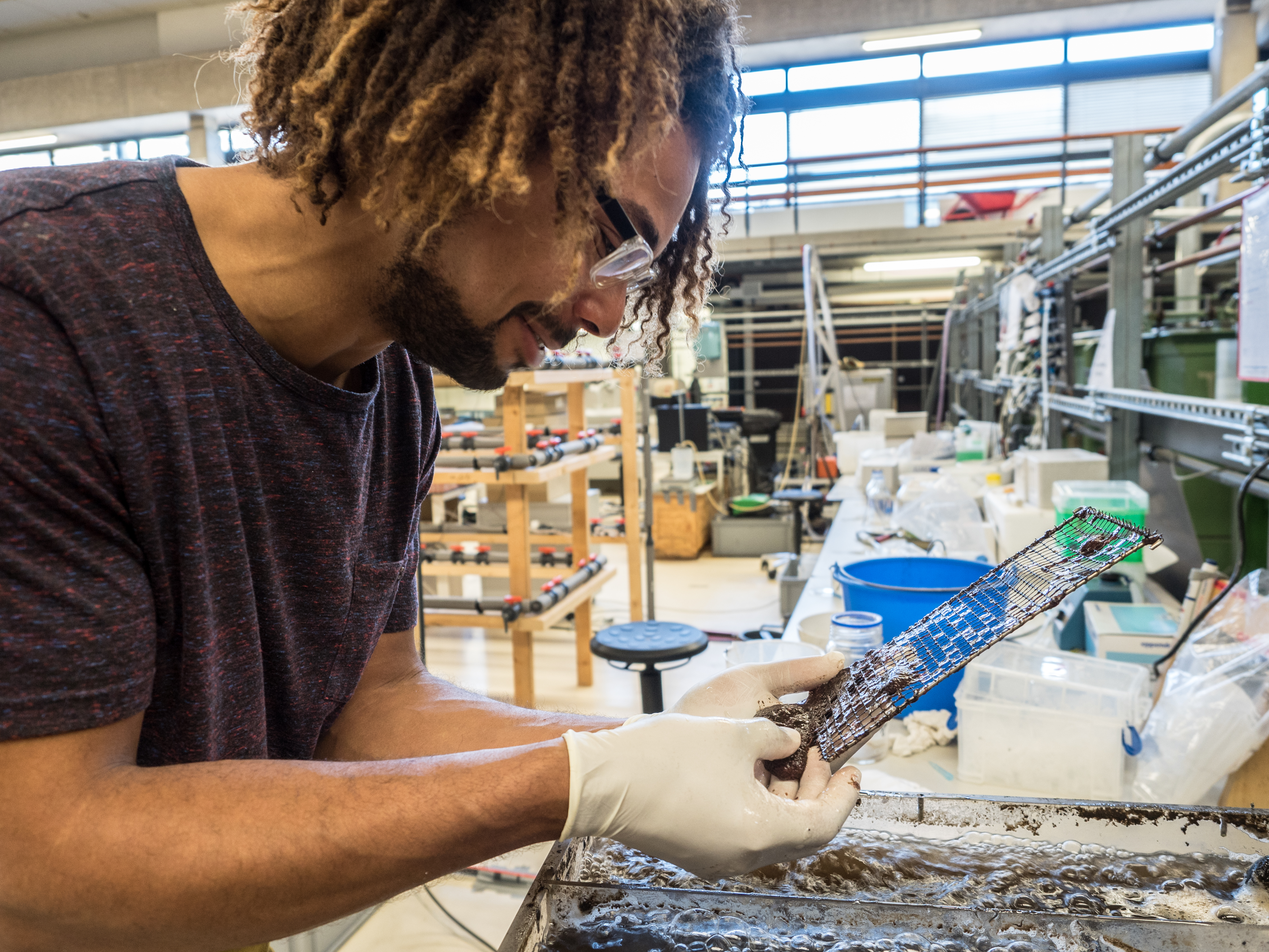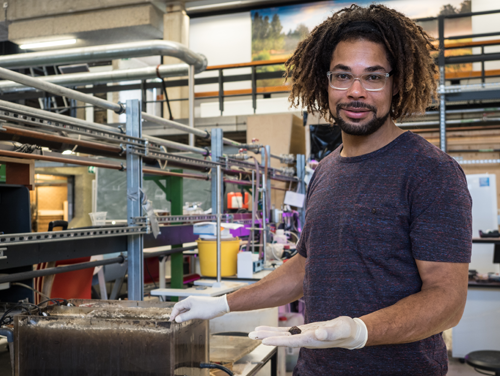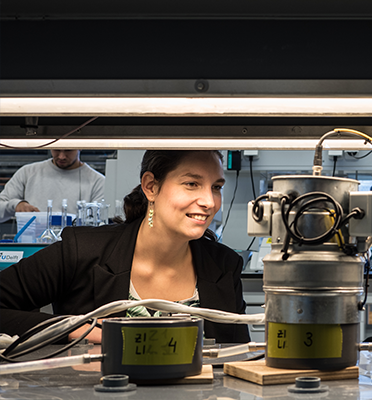Getting the best out of nature is what drives biotechnology scientist Steef de Valk. In the Waterlab of TU Delft he is researching the way tubifex worms process sludge. Knowing more about how they manage to decompose the sludge so efficiently, can contribute to a better purification process in waste water treatment plants.
“There is no need for genetic manipulation. Nature has it all”, says Steef enthusiastically, “you need to find the best way of working together with nature to get the best out of it. It. If you can create the right environment, you can make things prosper and use them to your advantage.”
“There have always been discussions about the way we can use sludge to benefit our society”, Steef continues, “However, over time insights and circumstances in how to apply it best have changed.” Sludge is the ‘by-product’ of waste water treatment. It is a mixture of microbial biomass and non- degraded organic compounds that are left after the process. Originally, sludge was used as a fertilizer in agriculture. When laws prevented farmers from using it on their fields, the focus shifted to more efficient ways to treat sludge in waste water treatment plants . This is where the worms come in. The biological processes in such a treatment plant turn part of the organic compounds in the waste water into biomass, which is used as an energy source for biogas production. During biogas production the amount of waste is reduced by 30%. The rest is shipped off and burnt in incinerators. Transporting waste is costly. By introducing worms to the treatment process, an additional 30% of the sludge can be reduced. By putting worms in an environment they thrive in, that is contaminated sludge, we are working together with them. The worm process has a higher sludge reduction, thus reducing the amount of waste to be transported and burnt.
What mechanism are the worms using to digest the sludge so efficiently? Steef wants to know. It is most likely a combination of bacteria at work and the enzymes that the worm produces. Another example, this time on a microbiological level, of how a good match works well together in nature. “Finding out what the balance between this cooperation is, is the hard part. If the worm plays the major part, you need to find out which enzymes are used. If it is mainly due to the bacteria, it is an even bigger task to detect which ones out of thousands species are involved in the decomposition process. Once we understand the process, we could replicate it on a larger scale. Even though worms love the tough environment of sludge, they are fragile organisms. It would be more reliable to be able to copy the digestive mechanism.”
“However, the demands of society keep shifting”, Steef concludes. “Reducing sludge for the sake of getting rid of it does not seem the be a valid reason anymore. Sludge is more and more seen as a resource instead of a waste. By processing sludge differently, for instance with the use of enzymes, it can also be turned into fatty acids, which can be used as precursors in the production of a wide range of materials. Whichever way developments go, the worms have shown that there are different ways to deal with organic matter.”




